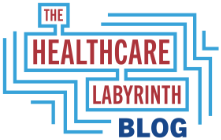
Value-Based Care Payments And Arrangements Explained
A few readers have written in and asked if I could explain the various value-based-care (VBC) payment and arrangement frameworks. Specifically, they asked about my references to global and partial risk funds for providers. Here is my best effort to explain what I see as the two overall types of VBC payments/arrangements we see in the marketplace today. Purpose VBC payments are meant to move from the fee-for-service (FFS) transactional payment system to one driven by efficiency and quality. What do I mean by transaction payments? For the past many decades, most payments in our healthcare system were made as a fee for each service transacted in the healthcare system. That can be the case when we go to the primary care physician (PCP), where he or she will be paid a fee by the insurer for the visit as well as other services provided. Similarly, a specialist may be










